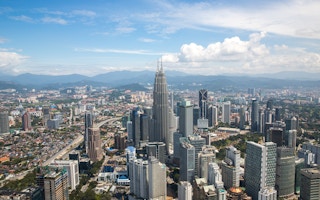As awareness on climate change and the risks it poses rise across the world, policymakers, building owners and architects alike are sitting up to take notice of the impact of buildings on the environment.
They are a source of a third of global greenhouse gas emissions today, and this number is set to double or triple if nothing is done, says the United Nations Environment Programme.
This is why any national effort to reduce emissions will have to involve the design and operating of smarter and greener buildings.
Come 26 to 28 April, smart buildings will be in the spotlight as Sphere Exhibits hosts the 2016 SMART Facilities Management Solutions Expo.
The trade exhibition, in its third edition, will showcase the latest technologies and solutions in energy management, security, environmental management, air conditioning and mechanical ventilation from over 50 exhibiting companies from across the world at the Singapore’s Sands Expo and Convention Centre.
Smart and green buildings
These smart solutions are increasingly sought after as governments and companies across the world look for ways to green their buildings.
Broadly, green buildings refer to those that are constructed from eco-friendly materials with optimised energy and water efficiency, and which provide green spaces and a healthy indoor environment.
Their numbers have been on the rise in recent years, but the myriad considerations that go into their planning, construction and maintenance can be a daunting challenge.
Enter facilities managers. Despite their low profile, these managers play a key and strategic role in ensuring that buildings are built in an environmentally friendly way, while creating a high quality indoor environment for their occupants.
Practitioners in facilities management have a multi-disciplinary work scope encompassing both strategic planning and day-to-day operations. They require skills and knowledge in communications, finance, operations and maintenance, project management, technology, legislation and more – all aspects related to managing a building.

Dr. John Min, vice-president of SIBL
In recent years, facilities managers have had to change the way they approached their role. “In planning for the future, we now have to consider sustainability when we look at any enhancements or new buildings,” says Dr John Min, vice-president of the Singapore Institute of Building Limited (SIBL).
Having trained as an architect and worked in the built environment sector for over 20 years, Dr Min has seen numerous advancements in facilities management. But one trend that has stuck and will continue to dominate the industry is the growing relevance of sustainability, he says.
“Ten years ago, the facilities management industry was focused on the IAQ, which is the Indoor Air Quality. Today, our focus is on the Indoor Environmental Quality (IEQ), and also the overall sustainability of the built environment,” says Dr Min, who was the chair of SIBL’s Sustainability & Green Technology Development Committee.
Facilities managers working in Asia, in particular, have an important responsibility in the proper maintenance and greening of buildings. Higher and greener building standards, along with the demands of a rapidly-urbanising region, will require these professionals to upgrade their skills and seek smart solutions to do their job better.
This includes ensuring operational continuity, managing the increasing complexity of buildings, and improving reporting and compliance in an integrated facilities management environment, among others.
Some emerging cutting-edge solutions include smart grid systems, which allow the integration of renewable energy sources and efficient distribution of electricity, and automatic identification and data capture (AIDC) solutions, which allow large amounts of data to be collected so as to enhance security in buildings.
Chua Wee Phong, chairman of Sphere Exhibits, a unit of media giant Singapore Press Holdings, says that apart from showcasing the latest innovations, the SMART Facilities Management Expo will also address the rapid developments in integrated technologies that have a “profound impact” on four key profiles of facilities. These are: mission critical, leisure and tourism, transport and public, and building and infrastructure.
To further deepen understanding and debate around the latest industry trends, Sphere Exhibits will also be hosting the co-located SMART Facilities Management Conference for the second time, which is an integrated platform for professionals to discuss the latest challenges and opportunities in smart facilities management.
One key challenge that facilities managers face, for instance, is the lack of effective data management, says Dr Min.
While government agencies in Asia have started to certify their buildings with international standards such as the United States’ green building certification programme called Leadership in Energy and Environmental Design (LEED) or Singapore’s Green Mark 2015, he believes more data is needed on indicators such as energy efficiency and reduction of materials usage.
“Facilities management is a manpower-intensive industry. It has the systems and technologies in place, but better data management will allow us to create a baseline to start making enhancements effectively,” he says.
Global industry professionals and technology veterans in facilities management will share latest insights and case studies, offering some 3,000 attendees a macro perspective of key issues and a chance to network with industry peers.
“
Everything we construct or introduce into a building from here on has to be sustainable.
Dr. John Min, vice-president of Singapore Institute of Building Limited
From theory to practice
Dr Min, who is also chairman of the conference, says that the event this year will offer a deeper engagement with the academic community.
He believes a platform that includes academia can help link theory to practice – that is, using research and development from academics to address industry challenges more effectively.
Through a one-day regional focus group session on 26 April themed ‘Challenges & Opportunities for Facilities Management in AEC’, key facilities management-related academic representatives from Bangkok’s Chulalongkorn University, the National University of Singapore, and Universiti of Teknologi Malaysia will meet practitioners and share developments in the field of facilities management for Asia.
Over 100 delegates, industry experts, and professionals from the Asean (Association of Southeast Asian Nations) region, including members from the Facilities Management Associations from Myanmar, Vietnam and others from the CLMV (Cambodia, Laos, Myanmar and Vietnam) region, are expected to attend.
“This approach will allow us to make connections between current practices and future potential solutions for the industry,” adds Dr Min.
Smart and green buildings are undoubtedly on the rise in Asia: China, for instance, has invested heavily into over 2,500 green building projects, while Singapore aims to have 80 per cent of its buildings certified green under its Green Mark scheme by 2030.
Market intelligence firm IDC forecasts that along with this growth, smart building technology spend will increase from US$6.3 billion in 2014 to US$17.4 billion in 2019.
Research from Navigant also predicts that building energy management systems, which use algorithms to provide data on energy efficiency, space utilisation and operational processes, will grow from US$2.8 billion this year to US$10.8 billion in 2024.
The robust growth of the industry underlines the important role that facilities managers and smart buildings will play in the coming years.
SMART Facilities Solutions Expo and Conference is poised to tap into this growing industry and provides an arena for its practitioners to network, exchange knowledge, share best practices and stay updated on the latest industry needs for future readiness, say the organisers.
As Dr Min aptly puts it, “Everything we construct or introduce into a building from here on has to be sustainable.”
The third edition of SMART Facilities Management Solutions Expo and Conference will showcase cutting edge and emerging technologies - such as the advent of smart technology and key building solutions - and address the challenges and future of smart facilities management. Organised by Sphere Exhibits, SMART Facilities Management Solutions Expo will be held from 26 to 28 April at Singapore’s Sands Expo and Convention Centre.
SMART Facilities Management Conference is organised by the Singapore Institute of Building Limited and Sphere Exhibits, a subsidiary of Singapore Press Holdings. Click here to register as a delegate.
Register as a trade visitor or conference delegate here. Eco-Business readers are entitled to a 10 per cent discount off the two-day conference pass for 27 to 28 April 2016.


















